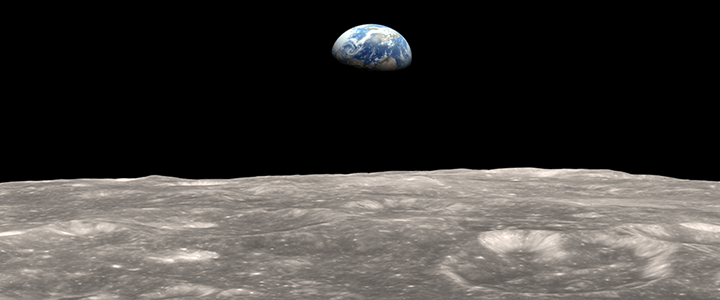As survey after survey makes clear, NASA is one of the best, if not the best, places to work in government. President Trump just made that deal a little sweeter. Inevitably, jobs will follow the money, so those looking for new, high-tech opportunities may want to begin watching as NASA gears up for the next big space race.
FISCAL BOOSTERS for Nasa
According to the Washington Post, President Trump’s nearly $20 billion funding bill for NASA is the first for the agency in seven years. And, relatively speaking, it’s a big, big boost. On average, NASA’s budget orbits somewhere around $10 billion a year, about half of 1 percent of the country’s $3.5 trillion budget. The President’s 2018 budget looks for $19.1 billion. The infusion of cash will inevitably mean jobs. “’We support jobs. It’s about jobs,’” the President said of the bill. And it’s about space-related jobs, more specifically. Indeed, while the new funding powers space exploration, President Trump’s budget would cut terrestrial NASA spending by 5 percent.
NASA JOBS
It’s not surprising that there are so few jobs advertised at NASA. Everyone wants to work there. There’s just something spectacular about the place (even the acting director—Robert Lightfoot—has a mythic, sort of awe inspiring name). Nonetheless, given the size of the agency, one would imagine the agency would have a few openings. Well, this morning, USAJobs features only three opportunities, all student trainees. Very likely, once jobs start popping, you’ll find them at Johnson Space Center in Houston and Kennedy Space Center in Cape Canaveral.
PUBLIC-PRIVATE MARKET
The majority of NASA jobs are contract jobs. Of nearly 80,000 employees, approximately three-quarters are contracted employees. Given the reported private-industry push for the Trump Administration, NASA’s a perfect investment opportunity. “The authorization bill mandates,” reports The Post’s Sarah Kaplan, “that NASA can’t acquire space flight services from a foreign entity unless there are no NASA vehicles or U.S. commercial providers available. It also directs the space agency to look into ways to boost the private space industry.” And that doesn’t just mean private contractors to build spaceships for federal astronauts. It’s about commercializing space flight, as well. Kaplan reports, “NASA could soon be chartering commercial flights to the [International Space Station].”
NASA’s own press release on the Presidents’ 2018 budget announces that “public-private partnerships [are] the foundation of future U.S. civilian space efforts.” Also in NASA’s future are “commercial over-land supersonic flights,” and “robotics exploration of the Solar System.”
Search job opportunities with NASA’s Jet Propulsion Laboratory.

